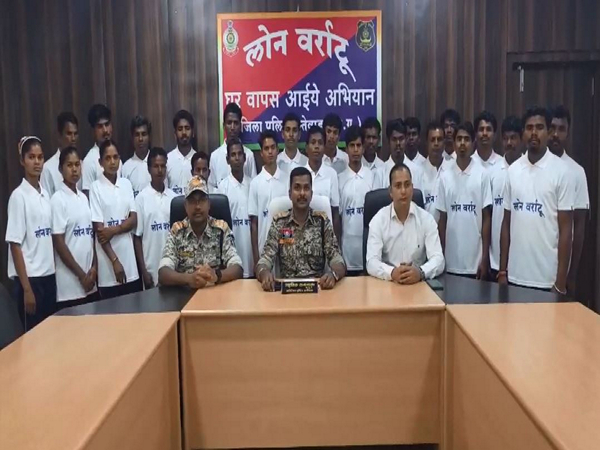Pandemic exacerbated crises caused by armed conflicts, Shringla at UNSC
Jul 16, 2021

New York [US], July 16 : Foreign Secretary Harsh Vardhan Shringla on Friday said the COVID-19 pandemic has exacerbated humanitarian crises caused by armed conflicts that severely impact the lives of millions of innocent civilians.
Addressing the UNSC briefing on "Protection of Civilians in armed conflict: Preserving humanitarian space", Shringla said, "the world today is engulfed in a range of humanitarian crises. Most of these are caused by armed conflicts that severely impact the lives of millions of innocent civilians. The COVID-19 pandemic has further exacerbated this situation."
At the beginning of his speech, Foreign Secretary mentioned Indian Photo Journalist Danish Siddiqui who was killed during a reporting assignment in Afghanistan.
"In this regard, I would like to strongly condemn the killing of Indian Photo Journalist Danish Siddiqui while he was on a reporting assignment in Kandahar in Afghanistan. I extend our sincerest condolences to his bereaved family. The complex nature of humanitarian situations around the world today demands the urgent attention of the Council."
Shringla said that the primary responsibility for providing protection and assistance in a humanitarian crisis lies with the concerned country and its national government. "However, international humanitarian assistance, when provided, must be given impartially, in accordance with the guiding principles outlined in General Assembly resolution 46/182 and other relevant resolutions."
India remains committed to preserving the principles of humanity, neutrality, impartiality and independence in responding to all humanitarian situations, he added.
"We also believe that respect for the principles of the UN Charter, including sovereignty, political independence and territorial integrity of Member States, should remain the basis for all humanitarian actions taken by the Council. The Council must avoid politicization of humanitarian work and of humanitarian actors involved in conflict."
He further said humanitarian action should not be used as a ploy to undermine the territorial integrity of States.
"Too often we have seen humanitarian assistance being linked to coercive measures by external players in order to force outcomes desired by them. Such actions run the risk of being counter-productive to achieving a resolution of the conflict itself and could further shrink the necessary space for much needed humanitarian action or assistance," he said.
Expressing concern about violence against humanitarian workers, he extended condolences to the families of the 99 humanitarian workers who were reported to be killed over the last year. "We strongly condemn attacks against humanitarian personnel."
"We should assist national authorities in developing capabilities and capacities to strengthen their national legal frameworks and related structures to investigate and prosecute the perpetrators."
He also called on sanctioning individuals and entities perpetrating serious violations of international humanitarian law. "We, however, believe that such measures should have wider regional and international support, in the absence of which, there may be further deterioration of the humanitarian crisis and shrinking of the humanitarian space."
"To conclude, we call upon all States to respect and adhere to the UN Charter, international humanitarian law and humanitarian principles. This alone will prevent any further shrinkage of the humanitarian space. India remains committed to working with the international community to address global humanitarian challenges in an effective and comprehensive manner," Shringla said.




















